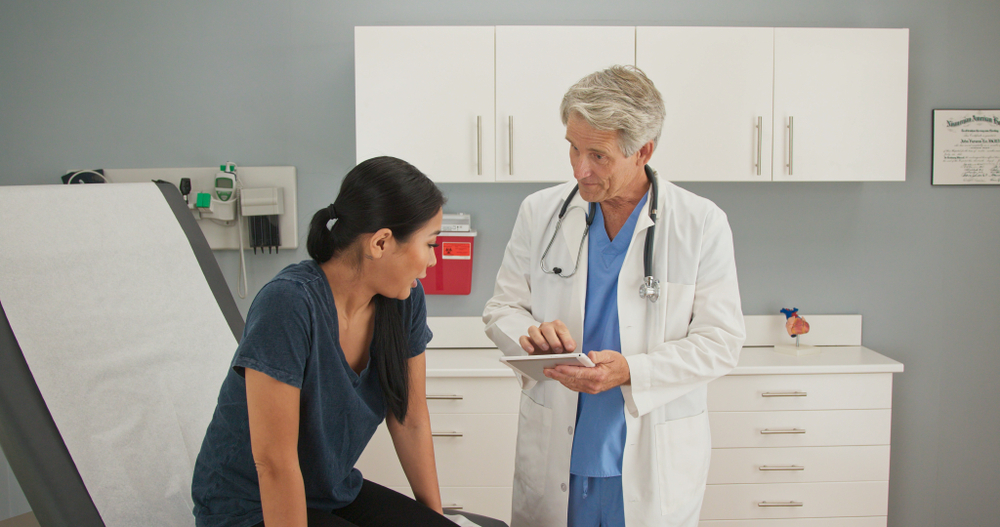When was the last time you visited an OB/GYN? In most cases, women fail to remember that. This is because the Annual Gynecologic (GYN) wellness exam is often skipped or neglected. The irony remains, that the reproductive system holds a significant role in the proper functioning of a woman’s body. Missing out on the Annual Exam puts a woman’s health at risk as it could make a woman remain oblivious to many health conditions.
What is the women’s Annual Exam?
It is a routine exam or a check-up in order to ensure that everything is in perfect health. What you need to understand is that the annual wellness exams are more than regular check-ups to the doctor. You enlighten yourself with knowledge about your body and your reproductive health. Other than that, it helps detect health issues that could affect you in the long run. This way this check-up becomes a preventive exam to keep the foundation of health; your reproductive system, in its best condition. Women’s Annual Exam molds you to become aware of your wellness. Apart from that, it helps you spread the right word out in the world.
What happens at a woman’s Annual Exam?
- First things first, you are screened for any potential gynecologic health issue. These screenings include a breast exam, pelvic exam, Pap smear, counseling related to menopause management or contraceptives, and STDs. It also includes the laboratory testing that tells you about certain vitals, HIV testing, bone density measurements, hepatitis C testing, vaginal infections, and even cancer screenings.
- You are first consulted and asked about your health history. Your health is evaluated through a series of questions. These questions include your lifestyle habits such as your diet, physical activity, smoking habit, etc. You could also be asked about pregnancy and related topics just to get a better idea about your experience.

- Next, there will be some physical exams that will be like any other routine test carried out by a family doctor. This includes blood pressure, lung, and heart functioning, weight, urine test, etc.
- After your physical exams, there will be a clinical breast exam conducted. Any signs of lumps are checked in the breast tissue. This test is conducted while you are lying down and sitting up to ensure that you are tested thoroughly. After the exam, your gynecologist will teach you the proper technique to examine on your own regularly.
- Then there will be a pelvic exam conducted. The pelvic exams differ from person to person depending on their age group. For instance, some women do not require a Pap smear every year. The cervix and the vaginal walls are evaluated. Apart from that, questions related to menopause, menstruation cycle, and follow-up queries will be asked.
The key to a successful women’s Annual Exam is not to shy away from sharing personal information that affects your health. For instance, some women may find it awkward to share the experience of a painful sexual intercourse episode while others may not feel comfortable discussing the abnormal vaginal discharge. You must not feel embarrassed about your concerns. What you as a patient must understand there are some signs that you Must not ignore.
- Regular bloating and pelvic pain
- Nipple/vaginal discharge
- Irregular periods
- Menopausal symptoms
- Vulvar changes
- Heavy bleeding
- Urinal infections
At what age should you start seeing a gynecologist?
There is no age group that is considered appropriate or proper to visit a gynecologist. Women’s Annual Exam is as relevant to a 15-year-old as someone who has crossed 55. However, the visits should be all the more regular after the age of 21. Every woman’s body is built differently and therefore the personal risk factors vary accordingly.

Women’s Annual Exam is all the more important to teenage girls as gynecologist addresses important topics such as birth control, vaccinations, menstrual cycle, weight control, STIs, questions about puberty, sex, etc.
How to prepare for the women’s Annual Exam?
It is important that you are well prepared before you schedule your Annual Exam. This way you are mentally ready for all the tests and formalities.
- Firstly, avoid the appointment if you are menstruating. Your menstrual cycle will be a hindrance during the Pap smear test. Although if the reason behind visiting a gynecologist is related to bleeding, then you must consult the health care provider before scheduling the exam.
- Secondly, come prepared with the list of queries. Annual Exam is not solely based on tests and reports. It is a healthy discussion and you must come up with a list of questions. It is natural to get anxious during these tests and when you come prepared with questions you do not miss any query that concerns your health.
- Keep a tab on your medications and make a list if possible. It is important to share the medications and the dosages. Sometimes some symptoms are due to medication and your gynecologist will be able to detect that problem instantly if you are able to paint a clear picture of your medication.
- Be aware of your family medical history. Not only is the question asked but as a woman, you should know if any genetic component affects your family’s health. This way it gives you a better idea about your health. It also gives the doctor a clear diagnosis of your condition.
- Ask a friend or a family member to accompany you. Visiting a doctor could be an overwhelming experience for some. While they may not be allowed in the exam room but you will be sorted that there is a support system while you take your tests.
Women’s Annual Exams in Memphis TN
Women are in the habit of skipping regular visits to the gynecologist. They ultimately visit them when a troubling symptom has escalated considerably. At that point, the symptoms have developed to an extent where the conditions go beyond treatments. Nothing is better than preventive care. You are in safe hands with a team of board-certified OB/GYNs at Poplar Avenue Clinic in Memphis, Tennessee. Schedule your Annual Exam today.

